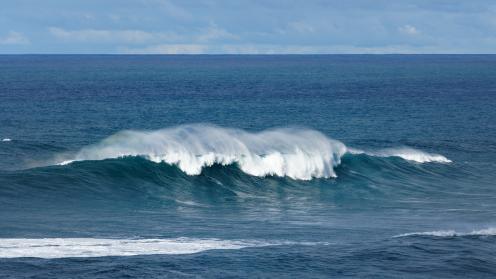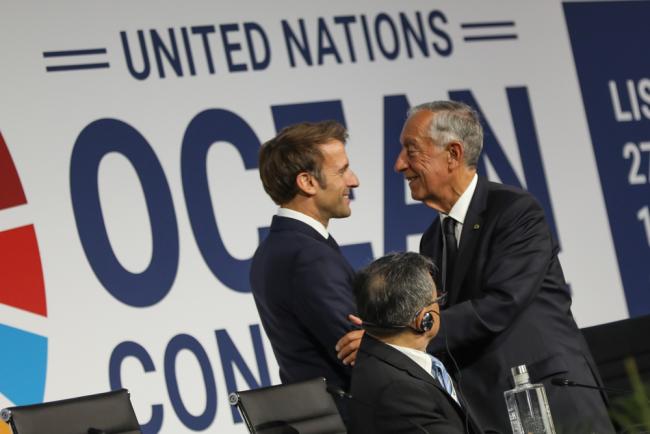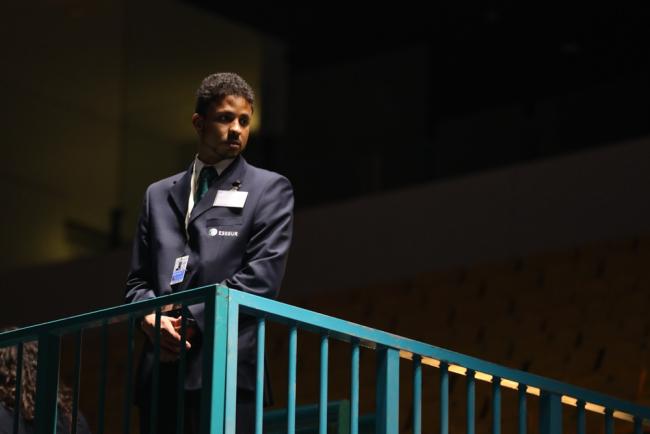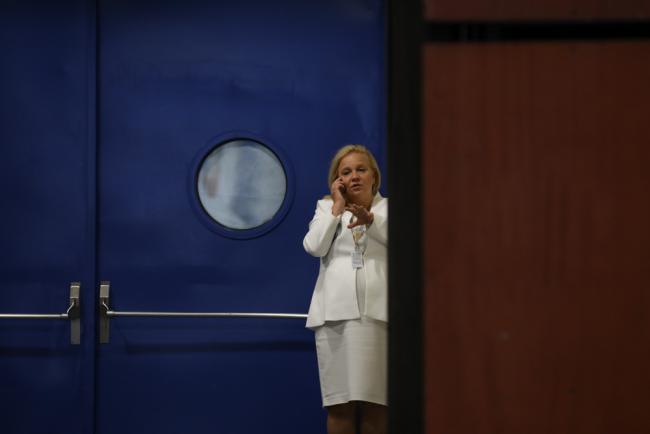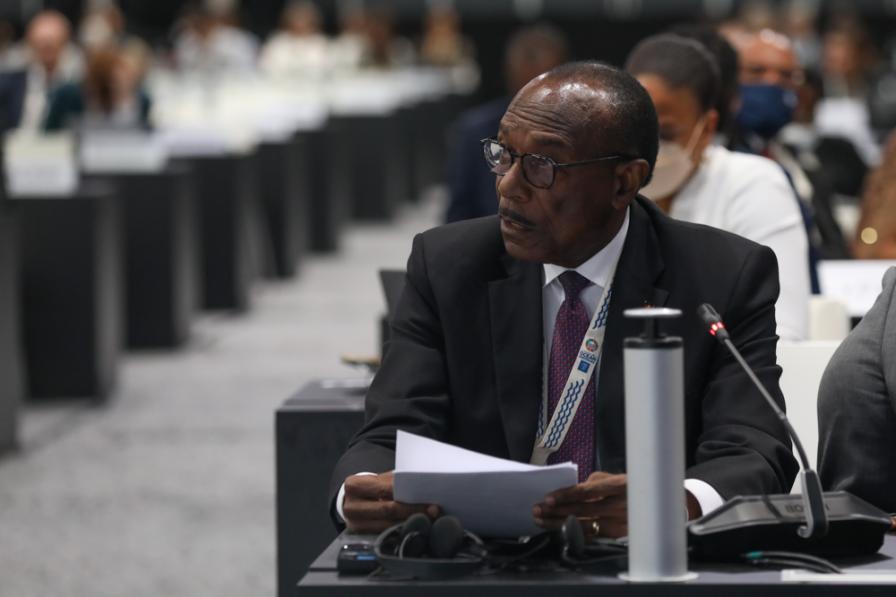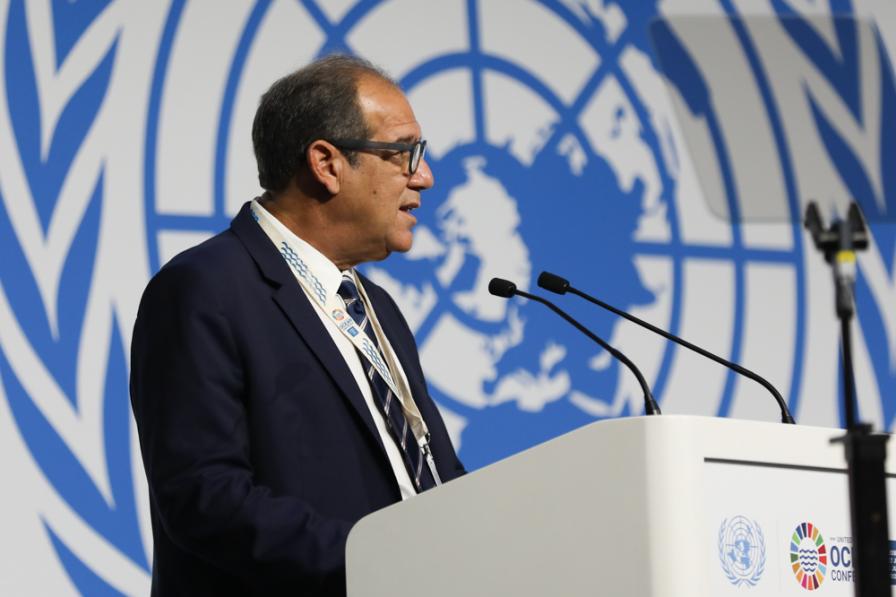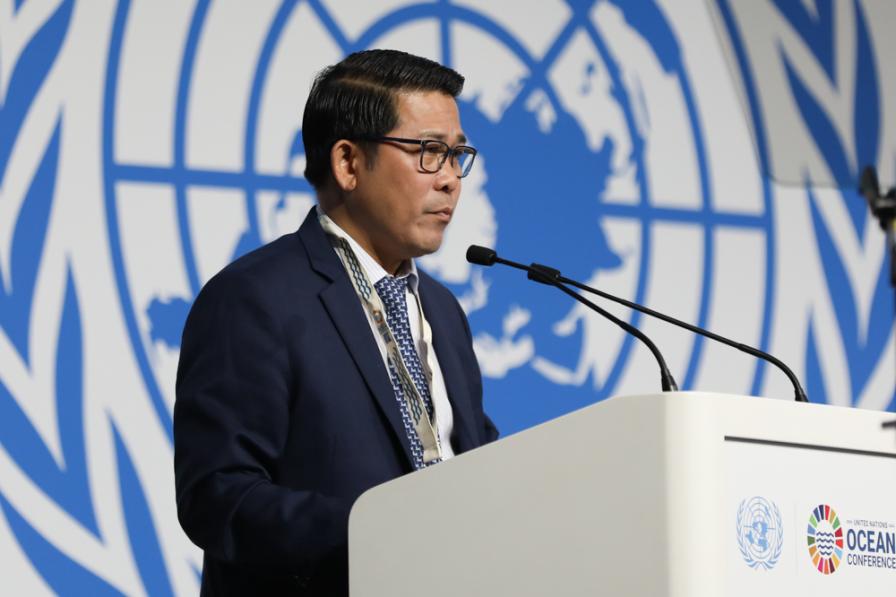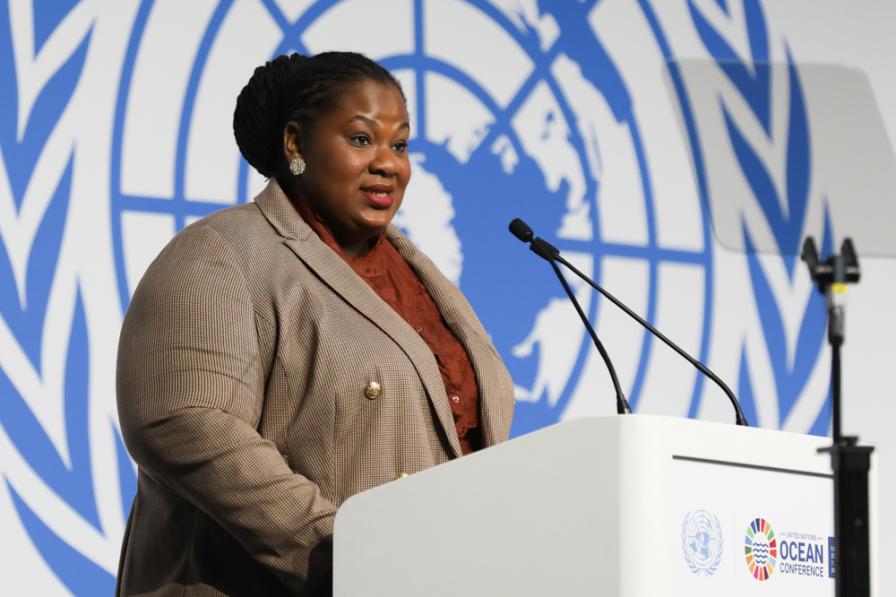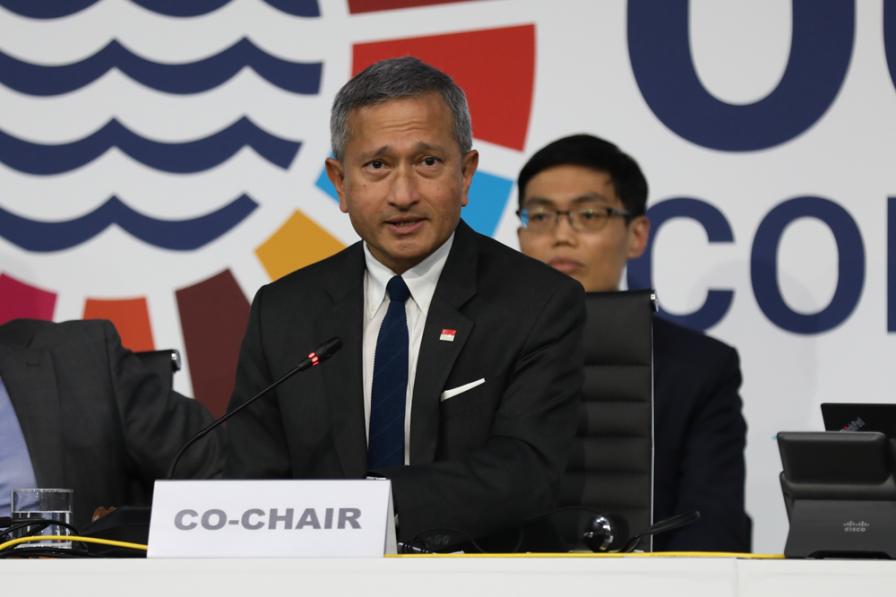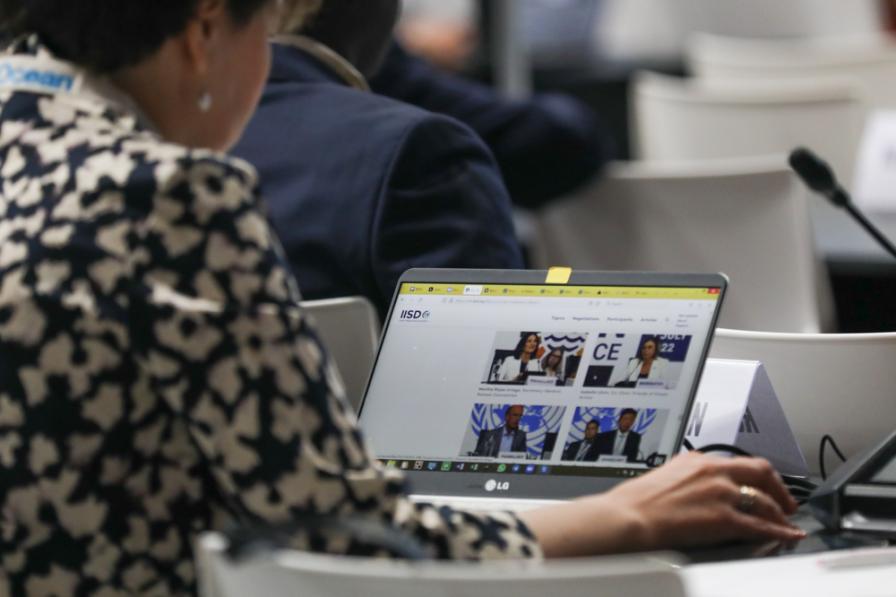Thursday marked the penultimate day of the second UN Ocean Conference, with non-state actors taking center stage. Delegates spent the day in plenary, concluding the general debate. They also convened in two interactive dialogues in the morning and afternoon. Several side events and special events were held throughout the day all over the city of Lisbon, Portugal.
To dive deeper, read the full Earth Negotiations Bulletin daily report.
During the general debate, delegates heard from President Emmanuel Macron, France, who supported the conclusion of negotiations towards a new agreement on the conservation and sustainable use of marine biodiversity of areas beyond national jurisdiction (BBNJ) in August 2022. He also announced that France would co-host the third UN Ocean Conference with Costa Rica in 2025.
In the general debate, where non-state actors shared their views, several delegations joined calls for a moratorium on deep seabed mining, noting that the risks would outweigh any potential benefits. Strong calls were also made regarding, inter alia: the ratification of the Agreement on Port State Measures to address illegal, unreported and unregulated (IUU) fishing, the need to stop bottom trawling, and the importance of meeting the Sustainable Development Goal 14 (SDG 14) target on designating 30% of the Earth as protected areas.
In the first interactive dialogue on increasing scientific knowledge and developing research capacity and transfer of marine technology, delegates were called to join the recently agreed declaration for the enhancement of marine scientific knowledge, research capacity and transfer of marine technology to small island developing States (SIDS). They discussed, among others, the importance of marine spatial planning, and the need to include Indigenous Peoples in decision making regarding the blue economy.
In the second interactive dialogue on enhancing the conservation and sustainable use of oceans and their resources by implementing international law, as reflected in the UN Convention on the Law of the Sea (UNCLOS), delegates were reminded that the oceans were here before us and will be here after us, explaining that the reasons for ocean law are really about human wellbeing.
Thursday’s Voluntary Commitments
- Colombia will extend its marine protection to 37% of its native waters, successfully exceeding the goal of 30% by 2030, and will designate four new MPAs, including one that expands the fully protected Malpelo Sanctuary of Fauna and Flora.
- Panama will protect 40% of its ocean before 2024. In 2021, Panama achieved 30% ocean protection nine years before the 2030 deadline by expanding the Cordillera de Coiba area.
- Finland announced 10 commitments worth at least EUR 100 million to improve the environmental status of the Baltic Sea.
- The Woods Hole Oceanographic Institution announced the Ocean Vital Signs Network to better understand ocean carbon fluxes.
- Chile announced a new MPA of importance to blue whales.
- The UN Economic and Social Commission for Asia and the Pacific announced a new commitment to continue enhancing regional cooperation for conservation and sustainable use of marine and coastal ecosystems.
- The European Commission announced a project towards establishment of an International Panel for Ocean Sustainability (IPOS), to allow for the assessment of the current and future state of the ocean.
All ENB photos are free to use with attribution. For the 2022 UN Ocean Conference, please use: Photo by IISD/ENB | Kiara Worth.
To receive free coverage of global environmental events delivered to your inbox, subscribe to the ENB Update newsletter.
Interactive Dialogue: Increasing Scientific Knowledge and Developing Research Capacity and Transfer of Marine Technology

Delegates gather for the interactive dialogue on increasing scientific knowledge and developing research capacity and transfer of marine technology

Vladimir Ryabinin, Executive Secretary, Intergovernmental Oceanographic Commission, UN Educational, Scientific and Cultural Organization (UNESCO)

Jane Lubchenco, Deputy Director, Climate and the Environment, White House Office of Science and Technology Policy, US

Armida Salsiah Alisjahbana, Executive Secretary, UN Economic and Social Commission for Asia and the Pacific (ESCAP)
Interactive Dialogue: Enhancing the Conservation and Sustainable use of Oceans and their Resources by Implementing International Law, as Reflected in the UN Convention on the Law of the Sea

Co-Chair Gudlaugur Thór Thórdarson, Minister of the Environment, Energy and Climate, Iceland, speaks during the interactive dialogue on enhancing the conservation and sustainable use of oceans and their resources by implementing international law, as reflected in the UN Convention on the Law of the Sea
